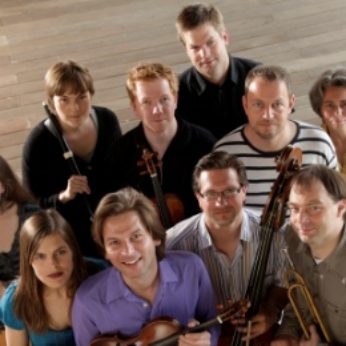Composer: Barbara Strozzi (b. 1619 - d. 1677)
Performance date: 01/07/2013
Venue: St. Brendan’s Church
Composition Year: 1651
Duration: 00:07:38
Recording Engineer: Damian Chennells, RTÉ lyric fm
Instrumentation Category:Baroque Ensemble
Instrumentation Other: S-solo, vc, thb, hpd
Artists:
Elbipolis Barockorchester Hamburg (Albrecht Kühner [violin], David Maria Gramse [violin], Kate Hearne [cello], Andreas Arend [theorbo], Veronika Brass [harpsichord]) -
[baroque ensemble]
Ruby Hughes -
[mezzo-soprano]

We have precious
little information on the fascinating life and musical career of the Venetian
singer-composer, Barbara Strozzi, but it is clear that she broke all the strict
social rules and expectations of women in the 17th century. Her mother was a
courtesan, her official description being that of a servant in the household of
Giulio Strozzi, who was the adoptive and probably the biological father of
Barbara. Giulio may have recognised Barbara’s musical talents early on and
encouraged her development by giving her an education, something denied to most
women of the time.
She was also a single
mother with four children, a free spirit, producing an extensive array of high
quality works with a clear personal signature designed to show off her extraordinary
voice. She in fact managed to publish more works in the 20 years between 1644
and 1664 than any of her male colleagues.
It may just be
coincidence that Strozzi published her first opus of madrigals in only 1644,
shortly after Monteverdi’s death, thus carrying on a tradition of madrigal
writing that her predecessor had so firmly set in motion. A quote which
accompanied her first publication suggests that her first opus may have
contained earlier works that perhaps she didn’t dare make public before her
idol was gone: the first work that I, as
a woman, all too daringly bring to the light of day. All the texts in this
publication are written by her father, Giulio, and their poet/musician,
father/daughter relationship was envied by many.
Strozzi’s second collection,
entitled Cantate, ariette, e duetti was
published in Venice in 1651 and dedicated to Ferdinand III of Austria and
Leonora II of Mantua. The exquisite L’amante
segreto (The Secret Lover), is a proclamation of forbidden, and most likely
unrequited love, a recurring theme in Strozzi’s songs. The aria itself is
constructed as a mini opera, with formal lyrical passages of vocal variations
over a simple 4-note descending passacaglia broken up by sections of
recitative, during which the emotions are intensely expressed by means of vocal
melismas.
Copyright © 2024 West Cork Music. All rights reserved.
Designed and developed by Matrix Internet